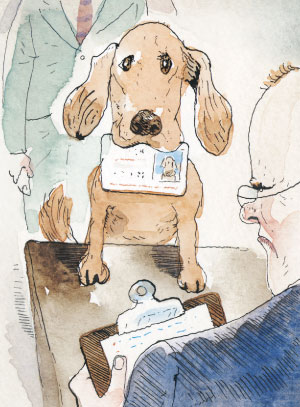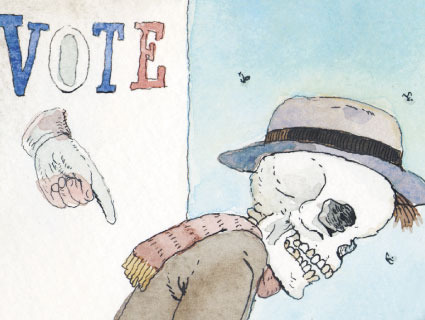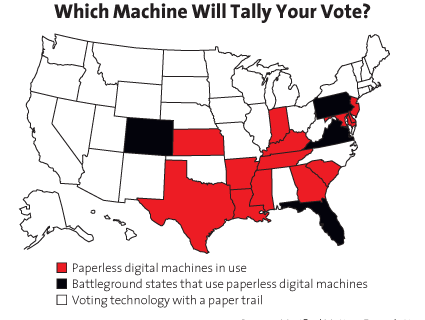Block The Vote
Since 2001, nearly 1,000 bills that would tighten voting laws have been introduced in 46 states.
24 voting restrictions have passed in 17 states since 2011. This fall, new laws could affect more than 5 million voters in states representing 179 of the 270 electoral votes needed to win the presidency.
In the past two years, 5 battleground states (Florida, Iowa, Ohio, Pennsylvania, and Wisconsin) have tightened their voting laws.
As of April, 74 restrictive voting laws were on the table in 24 states.
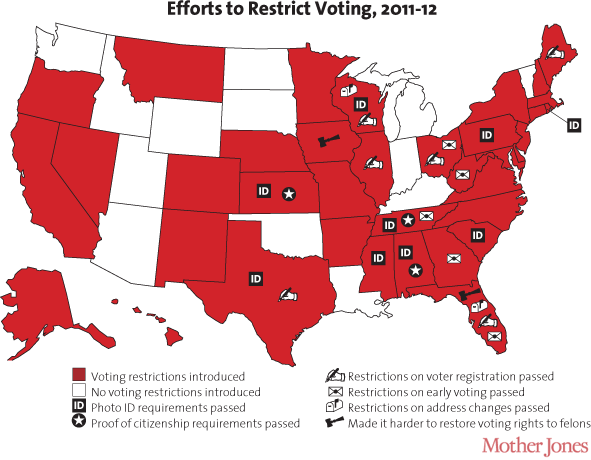
Sources: Brennan Center for Justice, NAACP
Card-carrying Americans Only
Since 2011, 34 states have introduced laws requiring voters to show photo ID, and 9 states have passed photo ID laws, affecting 3.8 million voters.
2.2 million registered voters did not vote in 2008 because they didn’t have proper ID.
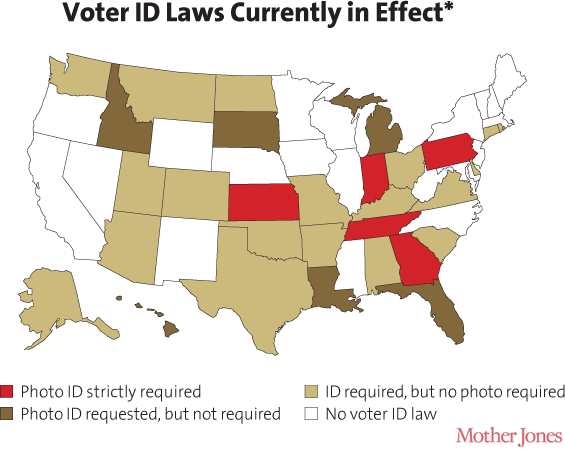
*Does not include laws awaiting DOJ clearance, blocked by courts, or not in effect until after 2012. Source: National Conference of State Legislatures
Last year, 12 states introduced laws requiring birth certificates or other proof of citizenship to vote; 3 passed.
Only 48 percent of women have a birth certificate with their current legal name on it.
Texas’ new ID law permits voters to use concealed-handgun licenses as proof of identity, but not state university IDs.
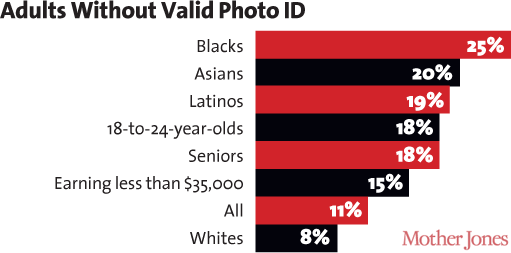
Sources: Brennan Center for Justice; Gabriel R. Sanchez, Stephen A. Nuño, and Matt A. Barreto
Discouraging New Voters
80 percent of the 75 million eligible voters who did not take part in the 2008 election were not registered to vote.
In 2008, more than 1/3 of voters cast ballots before Election Day. In 2011, 5 states passed bills to restrict early voting.
States with Election Day registration have 7 to 12 percent greater turnout than states without. Last year, 5 states introduced bills that eliminate Election Day registration.
12 percent of minority voters report registering through voter drives, twice the rate of white voters. In 2011, Florida and Texas passed laws making registration drives much harder to organize.
Florida state Sen. Mike Bennett, a supporter of the tougher voter registration law, said, “I don’t have a problem making it harder. I want people in Florida to want to vote as bad as that person in Africa who walks 200 miles across the desert. This should not be easy.”
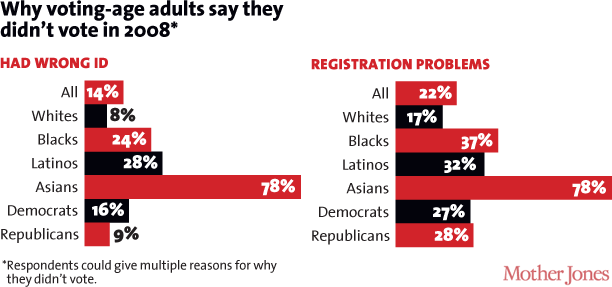
Locking Out Ex-cons
4 million Americans who have completed prison sentences are ineligible to vote. 38 percent of disenfranchised voters are African American.
13 percent of African American men cannot vote due to criminal records, a rate 7 times the national average.
The United States and Belgium are the only democracies that disenfranchise citizens for lengthy or indefinite periods after completing prison sentences.
To regain their voting rights, released felons in Iowa must provide the address of the judge who convicted them and a credit report showing they have paid off their court costs. “They make the process just about impossible,” said a 40-year old ex-con who’d stolen a soda machine as a teen.
In Search Of Stolen Votes
While defending its precedent-setting photo ID law before the Supreme Court, Indiana was unable to cite a single instance of voter impersonation in its entire history.
A 2005 report by the American Center for Voting Rights claimed there were more than 100 cases of voter fraud involving 300,000 votes in 2004. A review of the charges turned up only 185 votes that were even potentially fraudulent.
In support of a voter ID law, Kansas Secretary of State (and the legal brains behind a slew of anti-immigration laws) Kris Kobach cited 221 incidents of voter fraud in the state between 1997 and 2010. Yet those cases produced just 7 convictions—none related to impersonating other voters.
Last December, Republican National Committee Chairman Reince Priebus declared that Wisconsin is “absolutely riddled with voter fraud.” In fact, the state’s voter fraud rate in 2004 was 0.0002 percent—just 7 votes.
In 2008, John McCain said fraudulent registrations collected by ACORN were “one of the greatest frauds in voter history in this country, maybe destroying the fabric of democracy.” The Congressional Research Service found no proof that anyone improperly registered by ACORN tried to vote.
Federal convictions for election fraud, 2002-05
- Voting while ineligible: 18
- Voting multiple times: 5
- Registration fraud: 3
unidentified lying objects

Between 2000 and 2010, there were:
649 million votes cast in general elections
47,000 UFO sightings
441 Americans killed by lightning
13 credible cases of in-person voter impersonation
Special hat tip to craigconnects.org
Additional sources:
- A 2005 report by the American Center for Voting Rights…: The Myth of Voter Fraud by Lorraine C. Minnite
- 13 credible cases…: Justin Levitt, Loyola Law School

